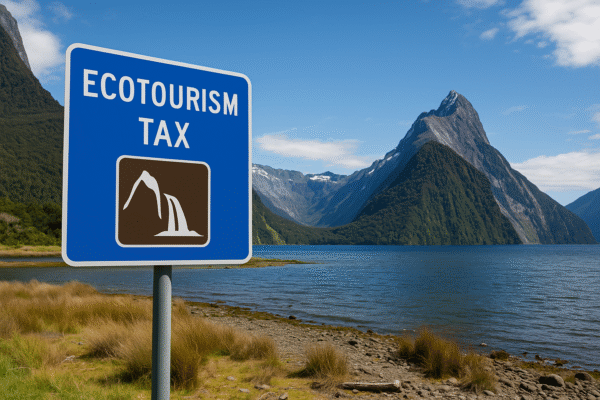Scotland has officially joined the growing list of global destinations embracing visitor levies, announcing a £4.83 per night tourist tax to take effect from 2027. The move aims to generate sustainable revenue for local communities, ease pressure on public infrastructure, and help preserve the country’s rich cultural and environmental heritage.
The new levy follows the approval of the Visitor Levy (Scotland) Act by the Scottish Parliament in 2023. Under this law, local councils can introduce their own versions of the tax tailored to regional priorities. Edinburgh was the first to sign on in 2024, quickly followed by Glasgow. With other cities and rural areas expected to adopt the policy before its 2027 rollout, Scotland is now poised to lead the UK in sustainable travel reform.
Why Scotland Is Introducing a Tourist Tax
As visitor numbers rise annually, especially during peak summer months, Scotland has been grappling with the strain placed on public services, transport systems, and natural attractions. The tourist levy, set at 5% of average accommodation rates, will help offset the environmental and logistical impact of tourism while reinvesting millions into vital services such as waste management, cultural festivals, historic preservation, and local infrastructure upgrades.
The Scottish Government emphasizes that the tax is not a deterrent but a necessary measure to ensure tourism remains beneficial for both visitors and residents. It reflects the global recognition that sustainable tourism requires shared responsibility.
Learning from Global Best Practices
Scotland’s initiative aligns with international trends seen in France (€15 in Paris), Italy (€10 in Rome), and Spain (€4 in Catalonia). These countries use visitor taxes to maintain iconic landmarks, manage tourist flows, and reinvest in cities.
Venice, for example, introduced a day-tripper fee of €5 to combat overcrowding. Greece implemented a climate resilience fee, while Amsterdam levies a 7% tax plus a flat fee. These examples demonstrate that when well-managed, tourism taxes can improve visitor experiences while protecting local assets.
In North America, U.S. cities like New York and San Francisco collect 10% to 17% in hotel taxes, channeling billions into infrastructure. In Canada, the MRDT system funds local marketing and tourism projects. Meanwhile, Mexico’s VISITAX supports environmental protection in hotspots like Cancun.
Asia and Beyond Follow Suit
Japan, Thailand, and Indonesia have each introduced their own forms of visitor fees. Japan’s departure tax, Thailand’s £7 entry fee, and Bali’s £8 culture tax reflect a growing push to align tourism with environmental and cultural stewardship. Bhutan, though an outlier, charges as much as £150 per day, using the funds to support high-value, low-impact travel.
New Zealand’s £17 IVL tax funds conservation and trail maintenance, while Tunisia, the Maldives, and Ecuador use similar charges for beach clean-ups, coral reef protection, and national park upkeep.
Local Benefits for Scotland
The £4.83 per night levy is expected to raise millions annually. Edinburgh, which receives over 4 million tourists a year, could alone generate over £20 million annually. Funds will go toward maintaining iconic sites like Edinburgh Castle, improving rural roads in the Highlands, and protecting fragile ecosystems in the Isle of Skye.
The revenue will also help expand cultural festivals, support Gaelic language initiatives, and fund public transport upgrades in major hubs like Glasgow. With many rural communities voicing concerns about tourism pressures, this funding could be a game-changer.
A Fairer Way Forward
As Scotland prepares to enforce the levy, tourism boards are focused on public education. The tax will be included in hotel bills, with transparency around where the money goes. Local councils will oversee fund allocation, ensuring the revenue serves community needs.
This move positions Scotland as a forward-thinking destination balancing hospitality with sustainability. It ensures visitors contribute fairly to the regions they enjoy, marking a pivotal shift from mass tourism to managed, mindful travel.
Conclusion: Shared Responsibility for Sustainable Tourism
Scotland’s upcoming tourist tax underscores a critical shift in global travel—from unchecked exploration to conscious contribution. With parallels across Europe, Asia, and the Americas, the £4.83 nightly fee is less a burden and more a passport to responsible travel.
As Scotland strengthens its cultural heritage, protects its wild beauty, and upgrades infrastructure, tourists will benefit from enhanced experiences. And locals will see a more balanced, sustainable future for tourism—proving that thoughtful travel isn’t just possible, it’s essential.
Scotland isn’t alone in this journey. But by joining global leaders in tourism reform, it sets a strong example: travel well, and give back to the places you love.
For more travel news like this, keep reading Global Travel Wire






















